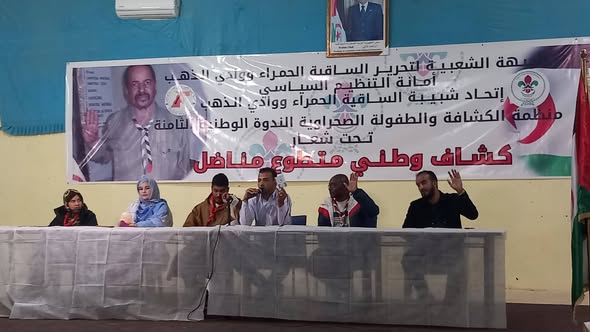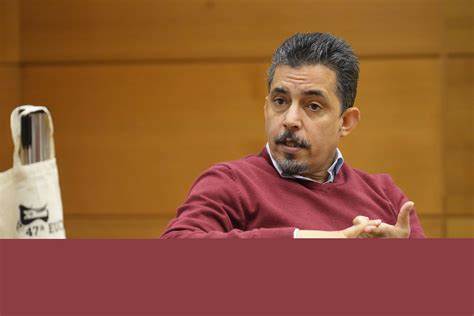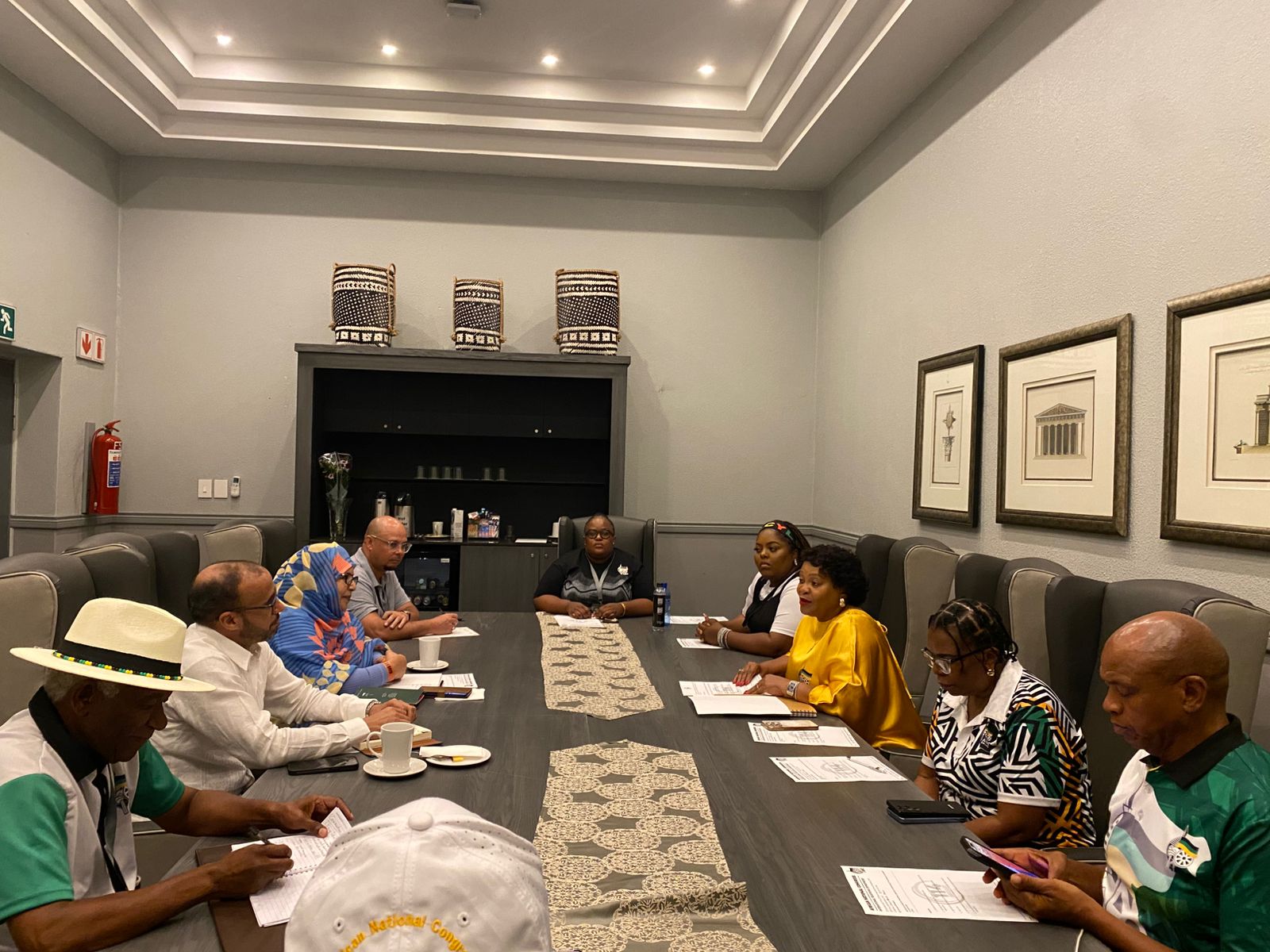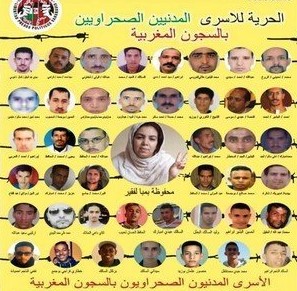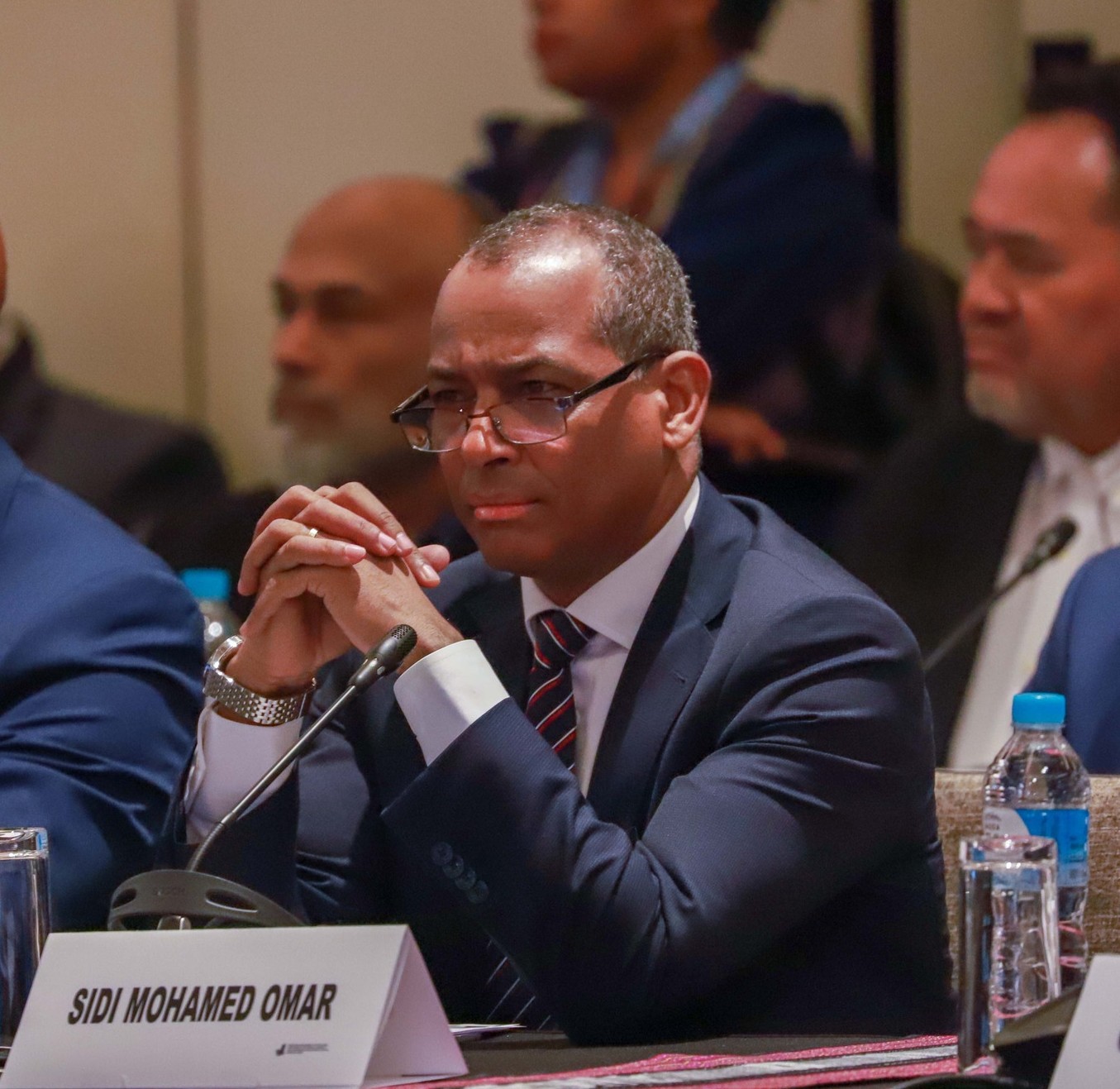
New York (United Nations), 9 June 2025 (SPS) - Member of the National Secretariat, Representative of the Frente POLISARIO at the United Nations and Coordinator with MINURSO, Dr Sidi Mohamed Omar, addressed today a letter to Ambassador Carolyn Rodrigues-Birkett, Permanent Representative of Guyana to the United Nations and current President of the UN Security Council, in which he rebutted, with documented evidence, the false and deceptive claims contained in the recent letter of the representative of Morocco, the occupying state, to the Security Council.
The following is the full text of the letter, a copy of which was obtained by the Sahrawi Press Service (SPS):
New York, 9 June 2025
H.E. Ambassador Carolyn Rodrigues-Birkett,
Permanent Representative of Guyana to the United Nations
President of the Security Council
Your Excellency,
I would like first to congratulate you on assuming the presidency of the Security Council for this month and to wish you every success in your mission.
The Security Council has recently received a letter from the Moroccan permanent representative to the United Nations in which, as usual, he crosses all boundaries of common sense and decorum not only to make baseless claims about the question of Western Sahara, but also to call into question the credibility of the Security Council and the integrity of its reports.
At its 9927th meeting, held on 30 May 2025, the Security Council (S/2025/336) considered its draft report to the General Assembly and adopted the draft report without a vote. However, instigated by Morocco, the occupying state, a non-permanent member raised a “point of order” during the meeting to which the delegation of the Russian Federation, responsible for drafting the introduction to this year’s annual report, gave a clear and cogent answer (S/PV.9927), thus showing the irrelevance of the “point” in question and laying bare the ulterior motives of its instigator.
Even though the “document was agreed by consensus” (S/PV.9927), in his letter the representative of Morocco, the occupying state, takes issue with what he calls “the singularisation of two parties” in the paragraph relating to Western Sahara in the Security Council’s report, and claims that “the Security Council has enshrined the four parties to the political process”. He even goes as far as to state that “no report by the Secretary-General or resolution by the General Assembly singles out two parties to the detriment of the four parties involved in the political process”.
As will demonstrated below by documented evidence, all these claims are false and deceptive. They are nothing but another insult to the intelligence of Member States.
It is an established fact that the conflict in Western Sahara is an international conflict in which Morocco, the occupying state, and the Frente POLISARIO, the sole and legitimate representative of the Sahrawi people, are recognised by relevant United Nations organs as the two parties to the conflict. Suffice it here to refer to Security Council resolutions 621 (1988), 658 (1990) and 690 (1991); General Assembly resolutions 34/37, 35/19 and 36/46; and other relevant Security Council and General Assembly resolutions.
Regarding the Secretary-General’s reports, suffice it to refer to his report (S/21360) of 18 June 1990, in which he states that “on 11 August 1988, the Secretary-General of the United Nations and the Special Envoy of the then Chairman of the Assembly of Heads of State and Government of the Organization of African Unity (OAU) presented, in separate meetings, to the parties to the conflict in Western Sahara, namely Morocco and the Frente Popular para la Liberación de Saguia el-Hamra y de Río de Oro (Frente POLISARIO), a document (“the settlement proposals”)…” (para. 1; emphasis added).
Furthermore, in its resolution 690 (1991) of 29 April 1991, by which the Security Council established, under its authority, the United Nations Mission for the Referendum in Western Sahara (MINURSO), the Council recalled that “the Kingdom of Morocco and the Frente Popular para la Liberación de Saguia el-Hamra y de Río de Oro gave their agreement” to the UN-OAU Settlement Proposals, and called upon “the two parties to cooperate fully with the Secretary-General in the implementation of his plan as described in his report of 8 June 1990 and amplified in his report of 19 April 1991” (PP 2 and OP 3 respectively; emphases added).
Concerning the General Assembly, suffice it to refer to its resolution 40/50 of 2 December 1985 in which the Geneal Assembly “again requests, to that end, the two parties to the conflict, the Kingdom of Morocco and the Frente Popular para la Liberación de Saguia el-Hamra y de Río de Oro, to undertake direct negotiations, in the shortest possible time, with a view to bringing about a cease-fire to create the necessary conditions for a peaceful and fair referendum for self-determination of the people of Western Sahara…” (OP 3; emphasis added).
With regard to the Security Council latest resolutions, one may refer, for example, to resolution 2756 (2024) of 31 October 2024. In this resolution, the Security Council, among other things, “emphasizes the importance of a renewed commitment by the parties to advancing the political process in preparation for further negotiations …. [and] encourages the neighbouring countries to make important, active contributions to this process” (OP 9; emphases added).
The question here is why does the Security Council refer to the parties and the neighbouring countries separately in one sentence if they all are the “parties” as the representative of the occupying state claims? Obviously, no one can expect a reliable answer from this same representative who brazenly misrepresented General Assembly resolution 3458 (XXX) B of 10 December 1975, claiming falsely that it “endorsed” the “Madrid Agreement” of 1975, whereas the resolution explicitly states that the General Assembly only “took note” of that agreement (S/2024/520).
After all, the undisputable fact that can neither be concealed by the mendacious propaganda of the occupying state nor be obfuscated by “destructive ambiguity” formulations is this: Morocco has been illegally occupying parts of Westen Sahara for almost five decades, and the Sahrawi people, led by their sole and legitimate representative, the Frente POLISARIO, have been engaged in a legitimate liberation struggle to resist Moroccan occupation and defend the sovereignty of their homeland.
The representative of the occupying state refers to the Moroccan colonialist “proposal” of 2007, which, in reality, is no more than a travesty through which the occupying state tries to “legitimise” its illegal occupation of the UN-listed Non-Self-Governing Territory of Western Sahara and to deprive its people of their inalienable right to self-determination and independence.
To conceal its failure in obtaining international legitimacy for its illegal occupation of Western Sahara, Morocco, the occupying state, attempts to “buttress its support base” by the unilateral and transaction-based positions taken by some countries. However, self-respecting countries that are genuinely committed to upholding the core principles of the UN Charter and international law can never accept, let alone endorse, this colonialist “proposal”, which must be vehemently condemned.
Moreover, countries that are concerned about stability of North Africa should know that peace and stability in our region can never be ensured by rewarding expansionism on which the Moroccan regime has always relied as the main tool to shore up the shaky foundations of its rule and threaten the security of its neighbours and the entire region. Rather, enduring peace can only be achieved by defending the fundamental principles of international law, including peoples’ sacrosanct right to self-determination and the principle of the inadmissibility of the acquisition of territory by force.
It is well-known that, by propagating its colonialist “proposal”, Morocco, the occupying state, tries to conceal its continued opposition to the self-determination referendum that it formally accepted in August 1988 by agreeing to the UN-OAU “Settlement Proposals” that constitute the core of the mandate of the United Nations Mission for the Referendum in Western Sahara (MINURSO).
The representative of the occupying state cannot deny that his former king committed his country to the referendum and solemnly undertook to accept its results (A/38/PV.8, para. 26). He cannot deny either that afterwards his country reneged on its commitment and “expressed unwillingness to go forward with the settlement plan” (S/2002/178, para. 48) as reported by the Secretary-General himself in 2002.
Former U.S. Secretary of State, James A. Baker III, who served as the Personal Envoy for the Secretary-General for Western Sahara from 1997 to 2004, explained why Morocco, the occupying state, backtracked on its commitment to the referendum. In an interview with PBS on 19 August 2004, James A. Baker III stated: “the closer we got to implementing the settlement plan… the more nervous I think the Moroccans got about whether they might not win that referendum.”
In a commentary published by The Washington Times on 28 May 2025, John Bolton, former National Security Adviser to President Donald Trump and former US Ambassador to the United Nations, affirmed that “Morocco began obstructing U.N. efforts to implement the resolution almost from the moment it passed, fearing that in a truly free and fair referendum, Sahrawis would choose independence”.
The testimonies by two recognised authorities on the subject are just two cases in point that confirm the obvious: the self-determination referendum in Western Sahara has not yet been held, not because of any “voter registration” issues, but only because Morocco, the occupying state, fears the outcome of the referendum. It is as simple as that.
I would be most grateful if you would bring the present letter to the attention of the members of the Security Council.
Please accept, Your Excellency, the assurances of my highest consideration.
Dr Sidi M. Omar,
Representative of the Frente POLISARIO at the United Nations and Coordinator with MINURSO

